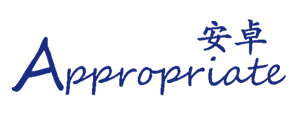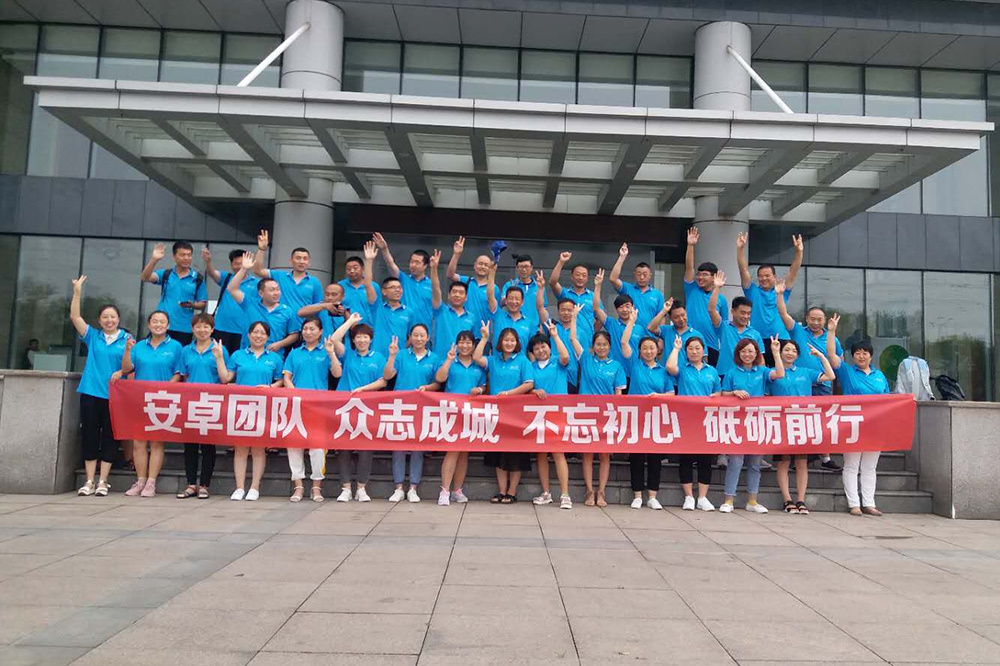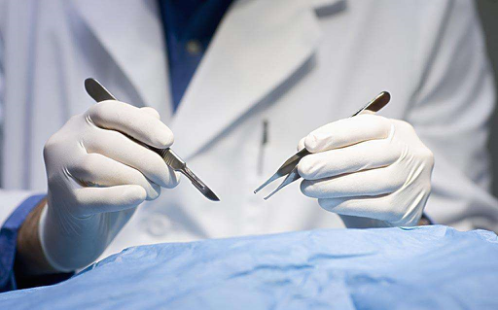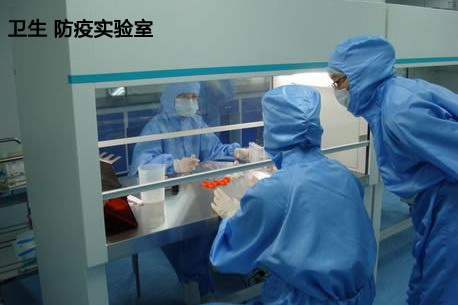Nonwovens supply chain responds to changes
Published Time:
2020-05-27
The company also announced that it would expand the production capacity of its melt blown cloth production line in its Statesville factory , North Carolina (hereinafter referred to as Statesville). By investing eight million dollars in new equipment and increasing the production capacity of existing production lines in this base
crisis has pushed the nonwoven application market such as automobile industry and construction industry to a pause, the demand in other areas (especially masks and medical protective clothing) is unprecedentedly high.
In fact, in mid-April, EDANA (European Nonwovens Association), headquartered in Brussels, Belgium, and 10 other European trade associations jointly issued a request to the EU and its member states, asking them to continue to cooperate with the non woven industry and strengthen cooperation to increase production capacity while relaxing restrictions on trade and inventory.
Ahlstrom-Munksjö, a non-woven fabric manufacturer, is also trying to help. Its non-woven fabrics Reliance SMS 200, Reliance SMS 300, Reliance Dextex 200 and Reliance Dextex 300 are compatible with French requirements for masks used by civil servants in contact with the public. These materials are commonly used in the manufacture of sterilized packaging for surgical instruments. Reliance SMS 200 and Reliance SMS 300 have also been tested and they meet the European surgical mask standard EN 14683 and the performance standards of surgical masks.
In May, the company has produced enough raw materials which could be used to make 100 million masks for civil servants (such as police officers, prison administrators, and social workers) who are in contact with the public and the companies active in important fields such as food, energy, water, and waste materials treatment .
"These efforts make Ahlstrom-Munksjö very proud. Our medical business has been providing service for the global medical device market, and our agility and innovation capabilities make us an ideal partner in emergency situations." Said Lionel Bonte, vice president of operations. In France, Ahlstrom-Munksjö has approximately 1,600 employees, eight production bases, two global R&D centers and a sales office.
Speed Up
In the non woven industry, companies throughout the supply chain are experiencing supply shortages. Reicofil is a manufacturer of meltblown nonwoven equipments, and meltblown nonwovens are a key material for manufacturing N95 masks. The company announced in late March that it would shorten the supply time of meltblown production lines to less than four months to help meet the global demand for this material and has begun to provide meltblown nonwoven materials through a pilot production line in Troisdorf, Germany.
Large mask manufacturers are also experiencing supply shortages. To solve this problem, Reifenhäuser CEO Bernd called on industrial production bases with closed supply chains to supply these materials to Europe.
He also pointed out: "We need to strategically carry out medical protective clothing production reserves in Europe. We must quickly increase the large-scale production capacity of masks, and at the same time, we must also establish the necessary high-quality nonwoven production capacity in Europe. Otherwise, We will always be dependent on the key links of the supply chain."
In order to maintain a smooth supply chain of raw materials, Russia's largest petrochemical company SIBUR and the main nonwoven fabric manufacturer Netkanika announced plans to expand their cooperation to provide high-quality disposable personal protective products for the medical industry. According to the agreement, SIBUR will provide polypropylene for Netkanika's nonwoven fabric production to serve the medical and health industries. Despite the surge in demand for medical and protective materials, Netkanika has not announced any investment plan in the production line, but it has focused on the solutions of some bottlenecks and other maintenance tasks to prepare for the increase in demand.
At the same time, SIBUR and Netkanika are considering ways to expand Netkanika's production capacity to meet the current and future needs of the healthcare industry. As a part of this plan, the two partners are discussing a long-term cooperation plan, SIBUR will provide Netkanika with raw materials at a preferential price to accelerate the potential return on investment.
Netkanika General Manager Rifkat Galimzyanov said: "Now, we are focusing our efforts on providing non-woven materials for customers who produce disposable personal protective equipment. The personal protective equipment includes medical masks and wearable equipment, baby and adult hygiene products. Due to the surge in demand, there is a shortage of such materials in the market, and we are planning to alleviate this situation by increasing production capacity."
Expand Production Capacity
The government and various companies have been working hard to increase the supply of masks. German nonwoven fabric manufacturer Sandler announced that it will add a production line to produce mask materials in Schwarzenbach, Saale. The company said in April that the new production line is scheduled to start in the middle of the third quarter, and the non-woven fabrics produced by then can produce up to 800 million masks.
"Demand for masks made of nonwovens has been going on for some time. Although they are produced around the clock, 7 days a week, we cannot accept new orders from mask manufacturers until June." President and CEO of the company Dr. Christian Heinrich said, "On the other hand, we are also aware that the health sector is still facing a severe situation, so we decided to invest in another non-woven production line for masks in the Schwarzenbach factory in Upper Franconia."
Sandler plans to use previous experience in the production of nonwoven materials for gas filtration, and they have been in this market for more than 20 years. The company said: "So far, the non-woven fabrics used for masks have not received widespread public attention because the previous epidemic diseases have less impact on them."
Due to the spread of COVID-19, the demand in Germany and across Europe has now increased significantly and may continue to be maintained in the long term. "Therefore, we are very glad that we are able to establish a complete industrial chain in Germany."
Berry Global, the world's largest nonwoven fabric manufacturer, has adopted a variety of methods to expand its production capacity for mask materials. The company has already invested in a new meltblown production line in Asia before the outbreak of the novel coronavirus and promised to add another one in France. In addition, Berry has converted its pilot production line in Waynesboro, Virginia into commercial operation, making its Meltex™ patented meltblown materials suitable for medical surgical masks and N95 and N99 masks. The new production capacity will enable the company to produce materials enough to make 200 million masks each year.
Recently, Berry also announced that it will continue to expand the production capacity of Meltex™ patented meltblown materials across the globe, and the new production lines will help meet the growing demand for mask filter materials. This measure is in response to the surge in demand for mask filter materials and non-woven protective materials due to the global novel coronavirus epidemic. The new production line adopts Berry's patented electret technology and it is expected to be put into commercialized production in October, 2020 at Berry's plant in Berlin, Germany. The production line will focus on the production of high-efficiency filter materials that meet the standards of FFP2 (N95) and FFP3 (N99) levels.
Meltblown nonwoven fabric is the best material for masks because of its high filtration efficiency, low pressure and light weight. Cedric Ballay, executive vice president and general manager of Berry's Medical, Hygiene and Special Materials Division in Europe, said, "This is a great technology that can protect people in a comfortable way."
At present, Berry's five existing meltblown production lines in the world have shifted the focus of its production to materials for masks. The company's new Reicofil 5 production line in China has also begun to produce meltblown materials for masks.
Bailey said: "Our entire company has done everything possible to expand the production capacity of meltblown materials to help fight the epidemic. At the same time, our other technologies are doing the same thing."
In Europe, Berry developed Synergex ONE, a new material for mask filter media, based on the current Synergex™ series of products. Synergex™ products were originally developed to meet the needs of the general population with a filtering efficiency that meets the EN 14683:2019 surgical mask standard. The new material will be produced at Berry's European plant and will soon be available in Europe.
“In the face of the increased demand caused by the epidemic, it is very important to be able to quickly develop new products in a short period of time.” Mr. Ballay said, “There are many types of materials currently available on the market, we are very proud that we could provide a solution to take place of the melt blown cloth made with the normal electret technology. We are continuing the development so that this material can pass the BFE Type I and Type II filtration efficiency tests."
The company also announced that it would expand the production capacity of its melt blown cloth production line in its Statesville factory , North Carolina (hereinafter referred to as Statesville). By investing eight million dollars in new equipment and increasing the production capacity of existing production lines in this base, Berry will further optimize the production of meltblown non-woven fabrics required for protective clothing, masks and other personal protective equipment.
Elsewhere in Europe, the board of directors of PFNonwovens announced in April that it would add a new meltblown production line in Znojmo, Czech Republic, which is also the company's first production line and it will produce mask materials for customers in the Czech Republic and Europe.
At the same time, the production capacity of mask materials in the United States has declined in recent years. After Johns Manville announced a plan to reconfigure the production capacity of filter media, it began to manufacture this material in Richland, Michigan.
Mary Rhinehart, President and CEO of Johns Manville, said: “We serve a global market with huge demands and are in a unique position. We are proud of our entire JM team who have discovered new ways to support the institutions and personnel fighting on the front line in this global crisis."
The filter media produced by JM meets or exceeds the requirements of the first level 95% BFE (bacterial filtration efficiency) and VFE (virus filtration efficiency). These results have been verified. John Vasuta, President of JM's Engineering Products Business, said: "Our high-performance nonwoven materials are designed to provide a high level of filtration for various types of masks."
In Wisconsin, 5K Fibers, which focuses on the area of filter media, has transferred most of its production capacity to the mask market. The company’s founder is Doug Brown, CEO of Biax-Fiberfilm, a supplier of meltblown equipment. They currently operate two production lines in their plant in Greenville.
The company hopes that the new plant could start production as early as June. They plan to build three production lines with a width of 60 inches. The Greenville plant is currently producing this meltblown nonwoven material and a patented spunmelt material. These materials are enough to be made into 3.5 million masks every day.
Brown said: "Our materials have been used in mask, personal protective equipment and filtration industries. The key function of our materials is it’s breathable and tight enough to prevent virus infection."
Not Just Non-woven Fabrics
Tredegar is a global supplier of perforated films and elastic fabrics, and it is also playing an active role to help fight the COVID-19 epidemic. Tredegar Personal Care is increasing its production of perforated films with air permeability and anti-liquid permeability for medical masks and N95 masks.
The company’s global sales and marketing director Steve Johnston explained: “We are committed to providing safe, high-quality products for the medical and hygiene market and working hard to improve the end users' experiences. Our current work on technology and R&D enable Tredegar to continue introducing product-driven solutions so that we can respond to the market quickly and support the high demand in the personal protective equipment (PPE) field."
Johnston continued: "Our FlexAire elastic fabric is very suitable for applications in PPE products such as FPE masks and it can provide a comfortable and reliable fit. Our sister company Bright View Technologies is now using our elastic materials as headband in its newly developed masks and we are also cooperating with other PPE manufacturers to quickly put protective equipment into the hands of medical staff."
Another film manufacturer, RKW, is working with partners to produce FFP2 type protective masks that the market urgently needs. They developed a mask containing spunbonded nonwoven laminated materials produced by RKW in just two weeks.
The company's production has been running at full speed, with the goal of achieving a production capacity of approximately 750,000 masks per week. "The current COVID-19 pandemic has brought challenges to the entire society and we are using our resources and expertise to fight against it. We are very glad and proud to be able to successfully participate in the development and production of protective masks in a short period of time. "Said Harald Biederbick, Chairman of the Executive Board of RKW Group.







